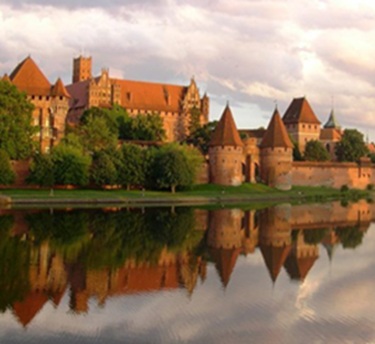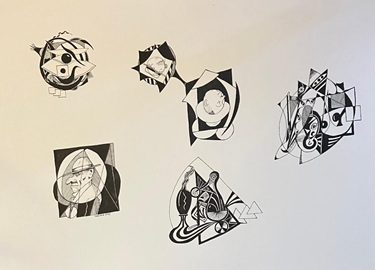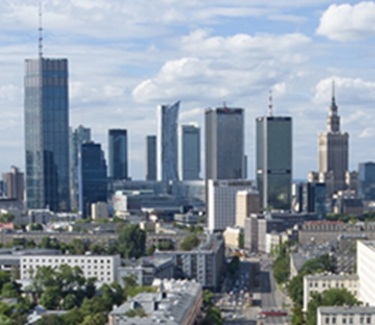A tale of two economies — nationalism and cultural homogeneity in Poland, globalism and multiculturalism in Toronto
Oct 7th, 2025 | By Randall White | Category: In BriefRANDALL WHITE. FERNWOOD PARK, TORONTO. TUESDAY, OCTOBER 7, 2025. This past Saturday I came across a social media thread on the country of Poland today. The thread master is called “Culture Explorer.”
Mr. Explorer begins his own message up front with two sentences : “Poland just became a $1 trillion economy without open borders, without giving up religion, and without tearing down its traditions … What did Poland do that the West won’t?”
(1) The Polish conservative miracle since the end of communism in 1989 and 1990
The message has a strong right-wing tilt. It also embraces what some would see as such current progressive values as “You can build prosperity without destroying beauty.”
But Culture Explorer’s unmistakable right-wing roots show clearly in pronouncements like : “While others erase their roots, Poland crowns its faith … Literally … In 2016, Poland officially named Jesus Christ as its King.”
In fact this last proposition about King Jesus turns out to be not exactly correct.
In the most illuminating “replies” part of the thread — following the up-front message on the Polish miracle since the end of the communist regime in 1989 and 1990 — a widely followed native of the country called rzep explains : “No, Poland DID NOT do this … The polish catholic church did it … Poland is a secular country, as stated in its constitution.”
Yet even without Jesus as a secular King, Poland probably can stand as a current economic success that preserves a conservative society, controlled borders, high ethnic homogeneity, and strong traditional culture (including the Christian religion).

As one sympathetic observer urges in the replies to Culture Explorer : “Globalists are constantly trying to destroy Poland with multiculturalism and open borders, but people still resist.”
Others note that Poland is a member of today’s European Union. And it has received the largest subsidies in the EU variation on what we call equalization in Canada — payments from a central governing body, designed to give all members of the larger political organization more or less the same standards of public goods and services.
Others again call Poland “The Texas of Europe” and/or “The Japan of Europe.”
(2) Multiculturalism on the first westbound Sunday subway train in Toronto 2025
Whatever else, I found all this intriguing. And it was still on my mind the next morning, as I traveled on the first westbound Sunday subway train from my east-end neighbourhood all the way to the (mid-distance) west end — in Toronto, Ontario, Canada.
This is where I live myself. And it was long ago conquered by globalist apostles of multiculturalism.
More than half Toronto metropolitan area residents today were born outside Canada, in what often does seem like every corner of the global village.
(And “global village” was invented in the 1960s by Marshall McLuhan — born in Alberta, Canada but later living in an old midtown Toronto neighbourhood, where he suddenly realized “the medium is the message.” Which may still be of some slight interest in our age of social media?)
For reasons I don’t entirely understand, contemporary Toronto multiculturalism is on display almost brilliantly on the first westbound subway train Sunday morning (around 8AM).
Some of the surprisingly many riders are off to church of some sort no doubt. But, this early and judging by dress and states-of-not-being-quite-awake, most are going to work — of various kinds that might be expected on a Sunday morning?
At the same time, the stop at which the largest numbers left the train this past Sunday was St. George, at the edge of the downtown campus of the University of Toronto. (Which does have Sunday morning classes nowadays : I have just checked.)
Whatever their exact destinations, the people on the train are from a wide variety of African, Asian, and (vastly less prominently than earlier on) European backgrounds. They are hardworking, as their appearance on the first subway train on Sunday suggests..
Life for many involved is almost certainly a struggle. Canada has taken in somewhat too many upwardly mobile global migrants in the most recent past — more than the Canadian economy has been able to provide with decent jobs.
Too much immigration has now stopped abruptly. And ideally (with some realism?) this will improve the lot of born-outside-Canada migrants already here, as well as reassure some old-school born-in-Canada citizens (including some children of immigrants)..
Meanwhile the new multicultural universe on display on the first westbound subway train Sunday morning, in Toronto today, does not appear desperately unhappy. Sleepy yes. But no one looks close to any serious state of poverty. (And as just one such example, a drop-dead-gorgeous young black princess with a bare midriff got off at St. George this past Sunday, on her way to class.)
So … how does this Canadian globalism and multiculturalism on the ground today compare to the nationalism and ethnic homogeneity of the Polish miracle? I can only turn for a final time to a reply to the Culture Explorer this past Saturday : “So their economy is 40% the size of Canada’s with the same number of people?”






